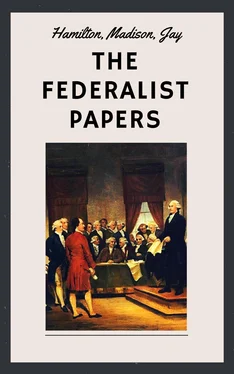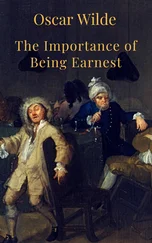They considered that the Congress was composed of many wise and experienced men. That, being convened from different parts of the country, they brought with them and communicated to each other a variety of useful information. That, in the course of the time they passed together in inquiring into and discussing the true interests of their country, they must have acquired very accurate knowledge on that head. That they were individually interested in the public liberty and prosperity, and therefore that it was not less their inclination than their duty to recommend only such measures as, after the most mature deliberation, they really thought prudent and advisable.
These and similar considerations then induced the people to rely greatly on the judgment and integrity of the Congress; and they took their advice, notwithstanding the various arts and endeavors used to deter them from it. But if the people at large had reason to confide in the men of that Congress, few of whom had been fully tried or generally known, still greater reason have they now to respect the judgment and advice of the convention, for it is well known that some of the most distinguished members of that Congress, who have been since tried and justly approved for patriotism and abilities, and who have grown old in acquiring political information, were also members of this convention, and carried into it their accumulated knowledge and experience.
It is worthy of remark that not only the first, but every succeeding Congress, as well as the late convention, have invariably joined with the people in thinking that the prosperity of America depended on its Union. To preserve and perpetuate it was the great object of the people in forming that convention, and it is also the great object of the plan which the convention has advised them to adopt. With what propriety, therefore, or for what good purposes, are attempts at this particular period made by some men to depreciate the importance of the Union? Or why is it suggested that three or four confederacies would be better than one? I am persuaded in my own mind that the people have always thought right on this subject, and that their universal and uniform attachment to the cause of the Union rests on great and weighty reasons, which I shall endeavor to develop and explain in some ensuing papers. They who promote the idea of substituting a number of distinct confederacies in the room of the plan of the convention, seem clearly to foresee that the rejection of it would put the continuance of the Union in the utmost jeopardy. That certainly would be the case, and I sincerely wish that it may be as clearly foreseen by every good citizen, that whenever the dissolution of the Union arrives, America will have reason to exclaim, in the words of the poet: "FAREWELL! A LONG FAREWELL TO ALL MY GREATNESS."
PUBLIUS
FEDERALIST No. 3. The Same Subject Continued (Concerning Dangers From Foreign Force and Influence)
For the Independent Journal. Saturday, November 3, 1787
JAY
To the People of the State of New York:
IT IS not a new observation that the people of any country (if, like the Americans, intelligent and wellinformed) seldom adopt and steadily persevere for many years in an erroneous opinion respecting their interests. That consideration naturally tends to create great respect for the high opinion which the people of America have so long and uniformly entertained of the importance of their continuing firmly united under one federal government, vested with sufficient powers for all general and national purposes.
The more attentively I consider and investigate the reasons which appear to have given birth to this opinion, the more I become convinced that they are cogent and conclusive.
Among the many objects to which a wise and free people find it necessary to direct their attention, that of providing for their SAFETY seems to be the first. The SAFETY of the people doubtless has relation to a great variety of circumstances and considerations, and consequently affords great latitude to those who wish to define it precisely and comprehensively.
At present I mean only to consider it as it respects security for the preservation of peace and tranquillity, as well as against dangers from FOREIGN ARMS AND INFLUENCE, as from dangers of the LIKE KIND arising from domestic causes. As the former of these comes first in order, it is proper it should be the first discussed. Let us therefore proceed to examine whether the people are not right in their opinion that a cordial Union, under an efficient national government, affords them the best security that can be devised against HOSTILITIES from abroad.
The number of wars which have happened or will happen in the world will always be found to be in proportion to the number and weight of the causes, whether REAL or PRETENDED, which PROVOKE or INVITE them. If this remark be just, it becomes useful to inquire whether so many JUST causes of war are likely to be given by UNITED AMERICA as by DISUNITED America; for if it should turn out that United America will probably give the fewest, then it will follow that in this respect the Union tends most to preserve the people in a state of peace with other nations.
The JUST causes of war, for the most part, arise either from violation of treaties or from direct violence. America has already formed treaties with no less than six foreign nations, and all of them, except Prussia, are maritime, and therefore able to annoy and injure us. She has also extensive commerce with Portugal, Spain, and Britain, and, with respect to the two latter, has, in addition, the circumstance of neighborhood to attend to.
It is of high importance to the peace of America that she observe the laws of nations towards all these powers, and to me it appears evident that this will be more perfectly and punctually done by one national government than it could be either by thirteen separate States or by three or four distinct confederacies.
Because when once an efficient national government is established, the best men in the country will not only consent to serve, but also will generally be appointed to manage it; for, although town or country, or other contracted influence, may place men in State assemblies, or senates, or courts of justice, or executive departments, yet more general and extensive reputation for talents and other qualifications will be necessary to recommend men to offices under the national government,—especially as it will have the widest field for choice, and never experience that want of proper persons which is not uncommon in some of the States. Hence, it will result that the administration, the political counsels, and the judicial decisions of the national government will be more wise, systematical, and judicious than those of individual States, and consequently more satisfactory with respect to other nations, as well as more SAFE with respect to us.
Because, under the national government, treaties and articles of treaties, as well as the laws of nations, will always be expounded in one sense and executed in the same manner,—whereas, adjudications on the same points and questions, in thirteen States, or in three or four confederacies, will not always accord or be consistent; and that, as well from the variety of independent courts and judges appointed by different and independent governments, as from the different local laws and interests which may affect and influence them. The wisdom of the convention, in committing such questions to the jurisdiction and judgment of courts appointed by and responsible only to one national government, cannot be too much commended.
Because the prospect of present loss or advantage may often tempt the governing party in one or two States to swerve from good faith and justice; but those temptations, not reaching the other States, and consequently having little or no influence on the national government, the temptation will be fruitless, and good faith and justice be preserved. The case of the treaty of peace with Britain adds great weight to this reasoning.
Читать дальше












